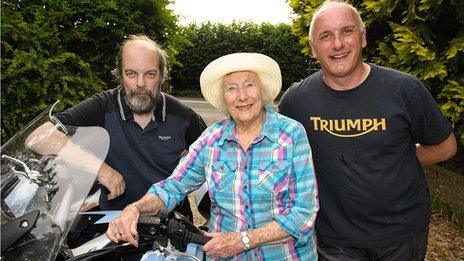World War One: The villages whose heroes all came home
- Published
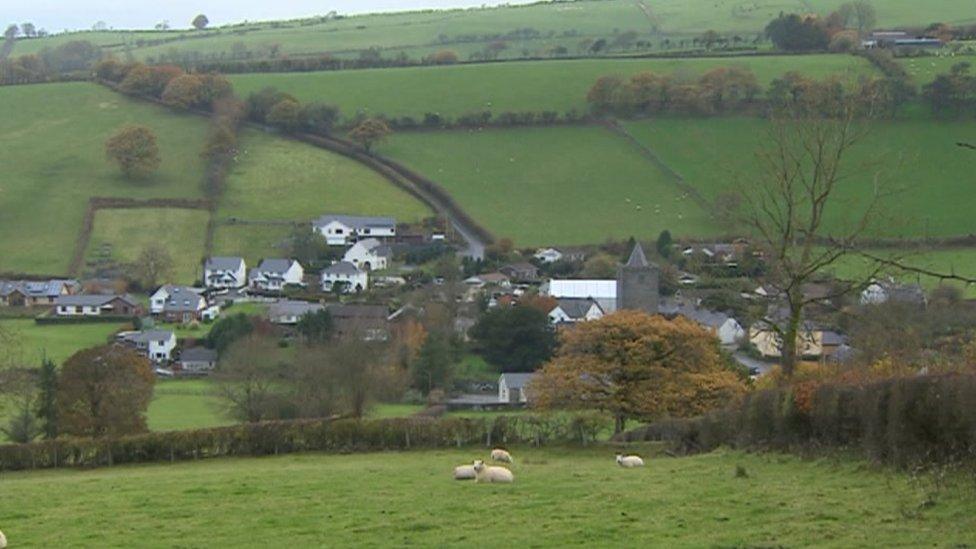
Llanfihangel y Creuddyn is one of two places in Wales to hold "doubly thankful" status
In two Welsh villages, no bells will ring on Remembrance Sunday, no wreaths will be laid nor silences observed.
Llanfihangel y Creuddyn near Aberystwyth, Ceredigion, and Herbrandston in Pembrokeshire have good reason.
Everyone who left those villages to fight in either World War One or World War Two returned home from battle.
As a result they are known as "doubly thankful" villages. There are 10 places in England with the same moniker.
A third Welsh village, Colwinston in the Vale of Glamorgan, is known as a "thankful" village after all its soldiers returned from World War One. Four soldiers from the village lost their lives in World War Two
Sheila Rattray's great-uncle William Davies was one of the men who left his Llanfihangel y Creuddyn home on the family farm to fight in the Great War.

The Armistice 100 years on

Long read: The forgotten female soldier on the forgotten frontline
Video: War footage brought alive in colour
Interactive:, external What would you have done between 1914 and 1918?
Living history: Why 'indecent' Armistice Day parties ended

He enlisted with the South Wales Borderers and became a driver responsible for the regiment's horses.
"He was a horseman and he would have worked with horses before he joined up on the farm at Cynon Fawr," said Mrs Rattray.
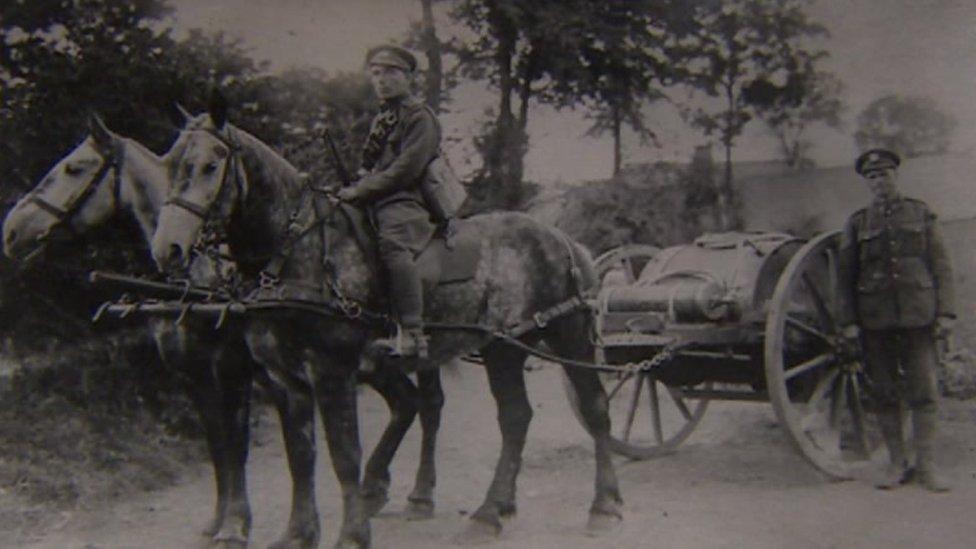
William Davies (left) became a driver responsible for South Wales Borderers horses
"I think we're very fortunate here in Llanfihangel not to have a war memorial.
"We're so fortunate that the boys who went to the First World War and the Second World War all survived and all came home.
"We are a 'doubly thankful' village and we are thankful for that."
About 886,000 soldiers, sailors and airmen were killed in World War One, of which 40,000 were Welshmen.
Everyone knew someone who had been lost in the war.
The villagers were keen to give thanks for the safe return of their men by holding concerts and fundraising events for those home on leave - and at the end of the war, when the men came home for good, there were more concerts.
Former headteacher and keen historian Gerald Morgan has found reports from the local newspaper, the Cambrian News, marking the return of the men.
He has made a list of 11 men who returned to the village.
"In April 1919 the local vicar returned, he had been a chaplain to the forces in Mesopotamia [Iraq], Egypt and Palestine, and his son was a cadet in the Army," he said.
"It is a small village, but for all the men to return home safely is quite something."
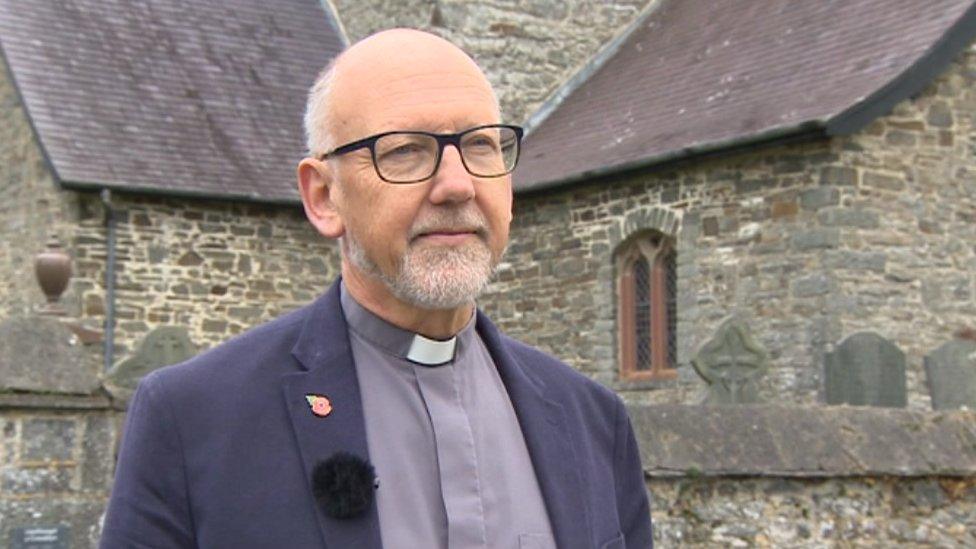
Canon Andrew Loat said many parishioners will go to a service at a nearby church
The term "thankful village" was coined by author and journalist Arthur Mee in 1936.
He wrote a series of guides called The King's England. In the first - Enchanted Land - he wrote that a thankful village was one which had not suffered any losses in World War One.
He identified 32 villages in Wales and England, while there are thought to be 13 doubly thankful villages.
As communities across the country gather around their war memorials on Sunday, the two Welsh villages will not follow suit.
Canon Andrew Loat is the team leader for the churches in the Llanfihangel y Creuddyn area, including St Michael and All Angels.
"We're very blessed in this part of Ceredigion and the churches are very good at supporting each other's services, so although there will be no service here many parishioners will go to other churches nearby where there will be a memorial service, because they did lose soldiers in the Great War," he said.
"They will be going there to remember those who were lost in the two wars and conflicts since."
- Published7 November 2018
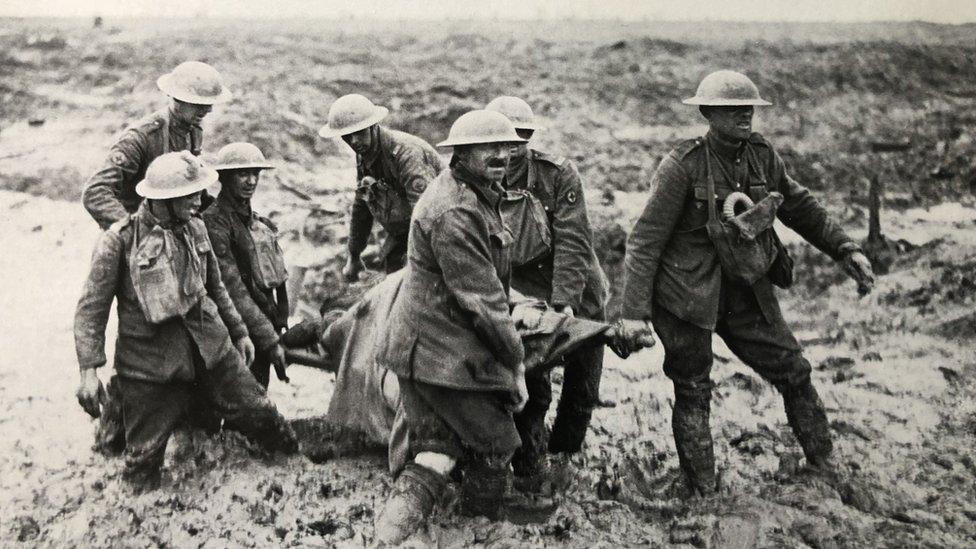
- Published11 November 2017
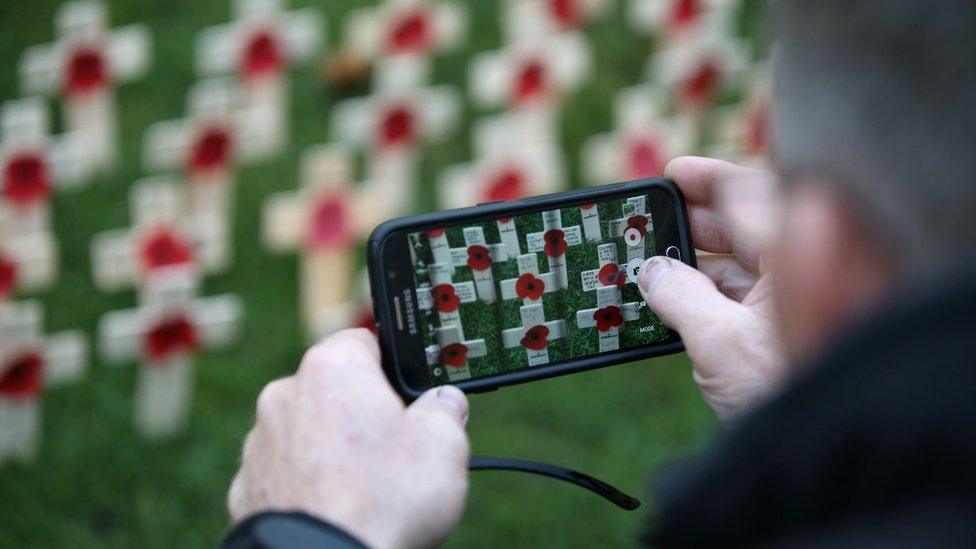
- Published27 February 2014
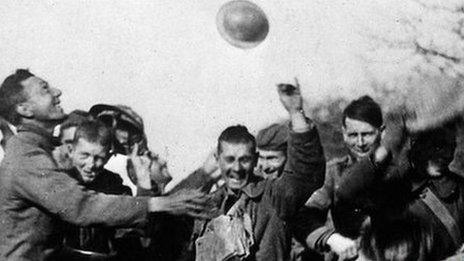
- Published11 November 2011
- Published27 July 2013
